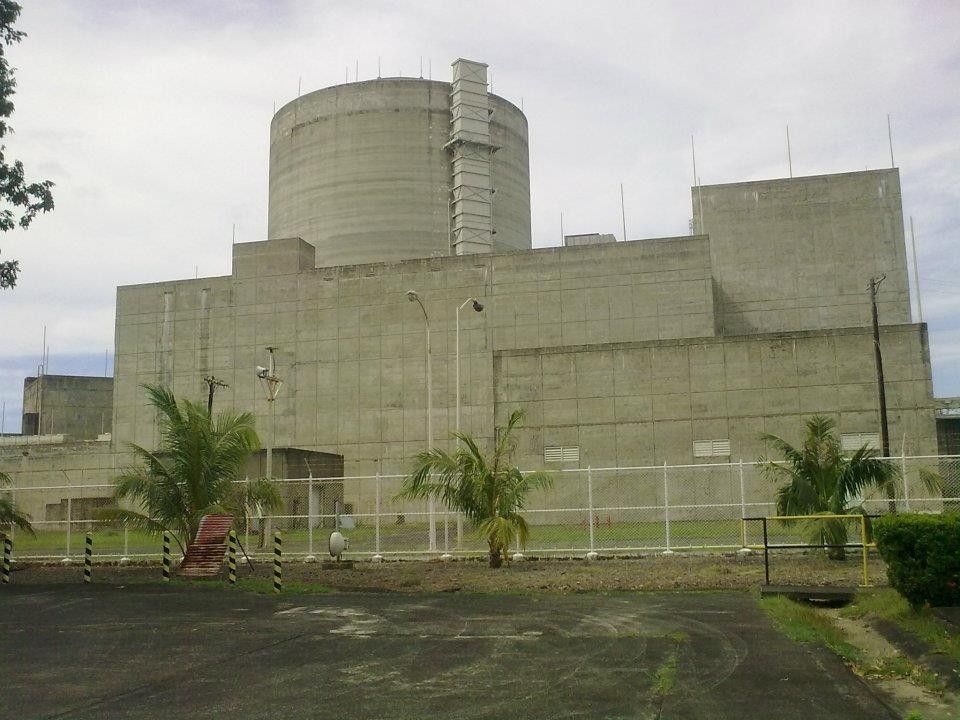Nuclear power seen to lower electricity rates — UniTeam

MANILA, Philippines — Having at least one nuclear power plant in the country will assure lower power rates for Filipinos, presidential aspirant Ferdinand "Bongbong" Marcos and his running mate Davao City mayor Sara Duterte-Carpio, known to their followers as "UniTeam", said on Tuesday.
They made this statement after it was announced that President Rodrigo Duterte signed an executive order (EO) introducing nuclear power in the country and developing a national program for it.
"Our vision for the country is to have at least one nuclear power plant so we can finally produce cheap energy and for us to lower our electricity rates," the UniTeam said in a statement shared with reporters.
The country has historically drawn a significant amount of its power from coal plants. In 2020, coal power plants accounted for more than half or around 57% of the Philippines' power generation output, according to the Energy department.
Citing statistics collected in 2019, Uniteam said the Philippines has the third-highest electricity rate in Asia, after Japan and Singapore -- both developed countries.
Marcos, the son of the late dictator, emphasized the need to consider nuclear power, which he said has been politicized.
He added that the country should look into reviving the 621-megawatt Bataan Nuclear Power Plant (BNPP), a project built during the time of his late father Ferdinand Marcos.
The $2.2 billion BNPP was completed in 1985, but was never refueled and subsequently mothballed after the ouster of the older Marcos and the Chernobyl disaster.
"Westinghouse (the builder of the BNPP) also built a similar nuclear plant in Korea. The design is the same; all of it is custom-made, but all the basic technologies used in BNPP were included in the Korea plant," Marcos said in Filipino.
The Partido Federal ng Pilipinas presidential bet has earlier said that the country should look into an offer from a South Korean firm to rehabilitate the plant.
The $2.2 billion BNPP may possibly be used to generate power, according to Duterte's EO on nuclear, but this can only be done after the nuclear energy program inter-agency committee conducts further studies on its use.
Meanwhile, Marcos also called to ramp up the use of renewable energy technologies such as solar, wind and geothermal power to complement existing power generation sources.
According to the former Ilocos Norte governor, the Bangui Wind Power Farm in Ilocos supplies 40% of the province's electricity requirements.
The famous wind farm, known as the first of its kind in Southeast Asia, is a project of the Ayala-owned North Wind Power Development Corp., which owns and operates the power plant.
Scientists' group warns against nuclear power
On Tuesday, Agham, a local science and technology advocacy group, separately expressed concern that nuclear may not be the most environmentally safe option to generate power.
"Agham believes that there are other more viable and environmentally safe energy alternatives as we have vast indigenous resources such as oil, solar, wind, geothermal, biomass, hydro, tidal that can provide supply to the local demand," the group said in an emailed statement shared with reporters.
Instead of reviving the BNPP, the country must look at constructing a natural gas plant which will produce more than enough power to supply the country's current and future energy demands, it added.
"With the proposed revival of the Bataan Nuclear Power Plant from [Duterte's] EO, we will have to endure the burden of what we experienced when it was constructed and was mothballed during the Marcos regime. The project has been tainted with corruption and there were also concerns on its safety when during the time the Three Mile Island nuclear accident happened," Agham said.
While it clarified that it is not against nuclear power, it opposes the government's promotion of an "obsolete technology" and "dangerous project" which would put lives at risk and increase the country's reliance on imported fuels.
If the Philippines chooses to pursue nuclear, it will have to import uranium and plutonium- which are used in nuclear projects- from other countries.
- Latest
- Trending

































